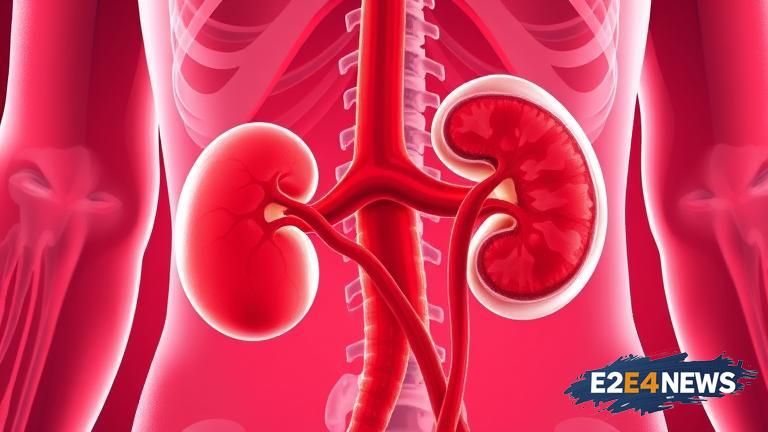A recent study published on Medscape has found a strong link between the duration of hypoparathyroidism and the development of renal dysfunction. Hypoparathyroidism is a rare endocrine disorder characterized by the underproduction of parathyroid hormone, which plays a crucial role in regulating calcium levels in the body. The study, which analyzed data from a large cohort of patients with hypoparathyroidism, revealed that the longer the duration of the condition, the higher the risk of renal dysfunction. This is a significant finding, as renal dysfunction can lead to serious complications, including kidney failure and cardiovascular disease. The researchers used a multivariate analysis to adjust for potential confounding factors, such as age, sex, and underlying medical conditions. The results showed that for every additional year of hypoparathyroidism, the risk of renal dysfunction increased by 10%. This suggests that early diagnosis and treatment of hypoparathyroidism are critical in preventing long-term complications. The study also found that patients with hypoparathyroidism were more likely to have pre-existing kidney disease, which further increased their risk of renal dysfunction. The researchers noted that the exact mechanisms underlying the link between hypoparathyroidism and renal dysfunction are not fully understood and require further investigation. However, they suggested that the chronic hypocalcemia and hyperphosphatemia associated with hypoparathyroidism may contribute to kidney damage over time. The study’s findings have important implications for the management of hypoparathyroidism, highlighting the need for regular monitoring of kidney function and aggressive treatment of underlying kidney disease. Additionally, the researchers emphasized the importance of raising awareness about hypoparathyroidism and its potential long-term consequences, particularly among primary care physicians and endocrinologists. The study’s results are consistent with previous research, which has shown that hypoparathyroidism is associated with an increased risk of cardiovascular disease, osteoporosis, and other complications. The researchers concluded that their findings provide new insights into the long-term effects of hypoparathyroidism and underscore the need for a multidisciplinary approach to managing this complex condition. Further research is needed to fully understand the relationship between hypoparathyroidism and renal dysfunction and to develop effective strategies for preventing and treating kidney disease in patients with this condition. The study’s results are expected to have a significant impact on the clinical management of hypoparathyroidism, particularly in terms of monitoring and treating kidney disease. The researchers hope that their findings will raise awareness about the importance of early diagnosis and treatment of hypoparathyroidism and promote further research into the long-term effects of this condition. In conclusion, the study provides new evidence of the link between hypoparathyroidism duration and renal dysfunction, highlighting the need for regular monitoring and aggressive treatment of underlying kidney disease. The findings have important implications for the management of hypoparathyroidism and underscore the need for a multidisciplinary approach to managing this complex condition. The study’s results are expected to have a significant impact on the clinical management of hypoparathyroidism and promote further research into the long-term effects of this condition.
